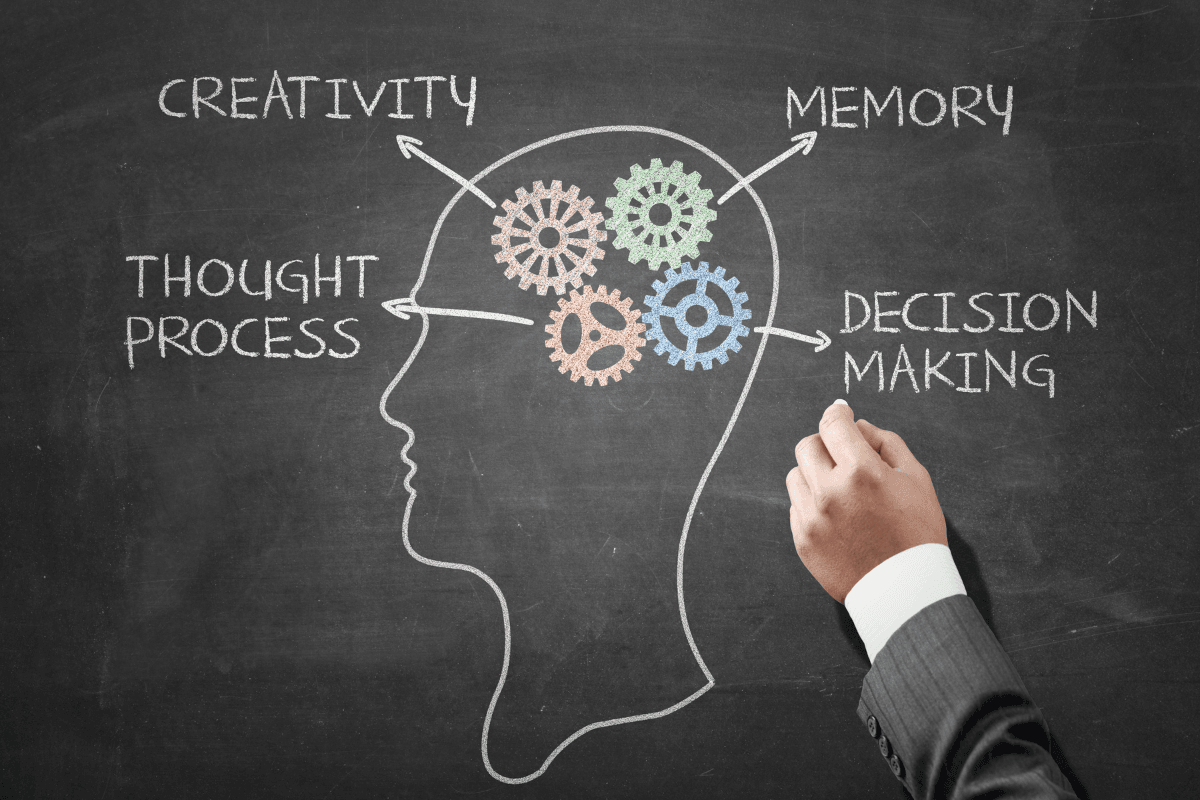Tired of guessing how to become a more effective coach? Unlock the power of mastermind strategies. This post will show you how to use mastermind groups to enhance your leadership skills and coaching algorithm.
You’ll learn practical ways to build a thriving mastermind community and leverage collective knowledge for client success.
By the end, you’ll have the tools to transform your coaching practice and boost your personal development. Ready to stop guessing and start mastering? Let’s dive in.
How Mastermind Strategies Can Propel Your Coaching to New Heights
Understanding the Power of Mastermind Groups in Coaching Success

You’ll discover the power of mastermind groups in coaching success. Learn how these strategies boost your skills and revenue. Explore their history, from insights to modern chief executive officer practices.
Uncover key benefits for coaches and how collaboration enhances outcomes. Gain ownership of your coaching journey through mastermind approaches.
Defining Mastermind Strategies and Their Impact
You’ll find mastermind strategies are powerful tools for enhancing your coaching success. These approaches involve collaborative conversations and a mindset focused on understanding and growth. By engaging in mastermind groups, you’re tapping into collective wisdom and experiences that can significantly boost your coaching skills.
The impact of mastermind strategies extends beyond personal development. You’ll see improvements in problem-solving abilities.
This collective approach helps you tackle complex coaching challenges with greater ease and creativity. Here’s how mastermind strategies can benefit your coaching practice:
- Enhanced problem-solving skills
- Expanded network of like-minded professionals
- Accelerated learning and growth
- Increased accountability and motivation
- Access to diverse perspectives and experiences
The History and Evolution of Mastermind Groups
You’ll find the roots of mastermind groups in the early 20th century, with Napoleon Hill’s “Think and Grow Rich” popularizing the concept. These groups evolved as a powerful tool for personal and professional growth, much like an effective onboarding process builds confidence.
Over time, mastermind groups have become a key marketing strategy for coaches, leveraging the energy of collective wisdom.
Today, you’ll see mastermind groups applying principles of game theory to solve complex problems and drive success. As you explore their evolution, you’ll notice how they’ve adapted to modern challenges, incorporating technology and diverse perspectives.
This evolution has made mastermind groups an essential component of many successful coaching practices, helping you unlock new levels of achievement.
Key Benefits of Mastermind Approaches for Coaches
You’ll find that mastermind approaches offer significant benefits for your coaching career. These strategies provide you with valuable mentorship opportunities, boosting your motivation and enhancing your professional development. By participating in mastermind groups, you’ll gain access to diverse perspectives and experiences that can sharpen your coaching logic and reasoning skills.
Mastermind approaches also contribute to your employment prospects and business growth. You’ll be able to expand your network, learn from peers, and stay updated on industry trends.
This collaborative environment fosters innovation and problem-solving, enabling you to offer more value to your clients. Here’s a breakdown of the key benefits you can expect:
- Enhanced professional growth through peer mentorship
- Increased motivation and accountability
- Improved problem-solving and decision-making skills
- Expanded network and business opportunities
- Access to diverse industry insights and trends
How Collaboration Enhances Coaching Outcomes
You’ll find that collaboration through mastermind groups enhances your coaching outcomes by exposing you to diverse perspectives and experiences.
This exposure helps you uncover new truths about coaching techniques and client engagement, leading to more effective strategies. As you attempt to solve complex coaching challenges, the collective wisdom of the group can provide valuable insights and research-backed solutions.
By participating in mastermind groups, you’ll gain a more comprehensive understanding of coaching reality. You’ll learn from others’ successes and failures, allowing you to refine your approaches and avoid common pitfalls.
This collaborative environment encourages continuous improvement and helps you stay current with industry trends, ultimately benefiting your clients and boosting your coaching success.
You’ve learned the power of mastermind groups. Now, let’s put that knowledge to work in your coaching practice.
Implementing Mastermind Strategies in Your Coaching Practice

You’ll learn how to implement mastermind strategies in your coaching practice. Discover how to prepare yourself to lead a group, structure effective sessions, and set clear goals with participants.
You’ll also explore ways to facilitate engaging discussions and evaluate your mastermind‘s success. These high-level strategies can help reduce stress and automate aspects of your business mastermind, much like an abstract strategy game.
Preparing Yourself to Lead a Mastermind Group
As a business coach, you’ll need to prepare yourself thoroughly to lead a successful mastermind group. Start by honing your leadership skills and deepening your understanding of group dynamics. You’ll want to create a clear structure for your mastermind program, outlining objectives and expectations for participants.
To become an effective mastermind leader, focus on developing your facilitation skills. As a life coach, you’ll need to guide discussions, encourage participation, and manage group energy.
Consider how you can incorporate leadership development exercises to enhance the value of your mastermind sessions for business owners.
Structuring Effective Mastermind Sessions
You’ll want to structure your mastermind sessions effectively to maximize their impact.
Start by setting a clear agenda for each meeting, including time for updates, problem-solving discussions, and goal-setting exercises. This structure helps keep the group focused and ensures everyone gets value from the session.
Consider incorporating different formats into your sessions to keep them engaging. You might use hot seat sessions where one member presents a challenge for group feedback, or implement peer accountability check-ins.
These varied approaches help maintain interest and address diverse coaching needs within your mastermind group.
Setting Goals and Expectations With Participants
You’ll want to set clear goals and expectations with your mastermind participants from the start. Discuss what each member hopes to achieve through the group and help them create specific, measurable objectives. This process ensures everyone is aligned and committed to the group’s success.
As you establish expectations, outline the time commitment, participation requirements, and confidentiality rules. You should encourage open communication and mutual respect among members.
By setting these guidelines, you create a supportive environment where participants feel comfortable sharing and collaborating.
Facilitating Engaging and Productive Discussions
You’ll find that facilitating engaging discussions in your mastermind group is crucial for success. Start by creating a safe space where participants feel comfortable sharing their thoughts and challenges. Encourage active listening and ask thought-provoking questions to stimulate deeper conversations.
To keep discussions productive, use time management techniques and set clear objectives for each session.
You can also incorporate collaborative problem-solving exercises or brainstorming activities to maintain engagement. Remember to balance group participation, ensuring everyone has an opportunity to contribute and benefit from the collective wisdom:
| Discussion Technique | Purpose | Implementation |
|---|---|---|
| Hot Seat Sessions | Focus on individual challenges | Rotate members to present specific issues |
| Round Robin Sharing | Equal participation | Each member shares insights in turn |
| Breakout Groups | In-depth exploration | Divide into smaller teams for focused discussions |
Evaluating the Success of Your Mastermind Implementation
You’ll want to regularly evaluate the success of your mastermind implementation to ensure it’s meeting your goals and those of your participants.
Start by setting clear, measurable objectives at the outset and tracking progress over time. You can gather feedback through surveys, one-on-one check-ins, or group discussions to gauge satisfaction and identify areas for improvement.
To measure the impact of your mastermind group, look at tangible outcomes such as revenue growth, client acquisition, or skill development among participants.
You might also consider less quantifiable factors like increased confidence, expanded networks, or improved problem-solving abilities. By consistently evaluating and refining your approach, you’ll create a more effective and valuable mastermind experience for everyone involved.
Strategies in hand, you’re ready to elevate your coaching. Now, let’s build a community that thrives together.
Building a Thriving Mastermind Community

You’ll learn how to build a thriving mastermind community for coaching success. Discover ways to identify and invite the right participants, foster trust, and create a supportive environment.
You’ll explore strategies for encouraging peer accountability and tracking progress. These techniques will help you develop a strong, effective mastermind group that boosts your coaching practice.
Identifying and Inviting the Right Participants
You’ll want to carefully select participants for your mastermind group to ensure a dynamic and productive community.
Look for individuals with diverse backgrounds and experiences who share similar goals and values. Consider factors like industry experience, business size, and personal strengths when evaluating potential members.
To invite the right participants, you can start by reaching out to your professional network or using social media platforms to connect with like-minded individuals.
Be clear about the group’s purpose and expectations when extending invitations. This approach helps attract committed members who will actively contribute to and benefit from the mastermind experience.
Fostering Trust and Open Communication
You’ll find that fostering trust and open communication is crucial for your mastermind group’s success. Start by setting clear ground rules that emphasize confidentiality and respect. Encourage members to share their challenges and successes openly, creating a safe space for vulnerability and growth.
To build trust, you can use icebreaker activities or pair members for one-on-one conversations outside group sessions. These strategies help participants connect on a personal level, making them more comfortable sharing during group discussions.
Remember, as the facilitator, you set the tone for openness and honesty in your mastermind community.
Creating a Supportive and Motivational Environment
You’ll create a supportive and motivational environment in your mastermind group by fostering a culture of empathy and encouragement.
Set the tone by celebrating each member’s successes, no matter how small, and offering constructive feedback when challenges arise. Encourage participants to share their goals and progress regularly, creating a sense of accountability and shared growth.
To maintain motivation, you can implement a system of rewards or recognition for achieving milestones.
Consider organizing occasional in-person meetups or virtual social events to strengthen relationships within the group. These activities help build a sense of community and keep members engaged in their personal and professional development. Here are some key elements to focus on:
- Celebrate successes and milestones
- Provide constructive feedback and support
- Encourage regular goal-sharing and progress updates
- Implement a rewards or recognition system
- Organize social events to build stronger relationships
Encouraging Peer Accountability and Progress
You’ll find that encouraging peer accountability is crucial for your mastermind group’s success. Set up a system where members pair up as accountability partners, checking in regularly on each other’s progress. This approach helps keep everyone on track and motivated to achieve their goals.
To track progress effectively, you can use shared online tools or spreadsheets where members update their achievements and challenges.
During meetings, allocate time for progress reports, allowing each participant to share their wins and seek advice on obstacles. This transparency fosters a sense of community and drives collective growth.
The mastermind community thrives on shared wisdom. Now, let’s apply these techniques to unlock your clients’ potential.
Leveraging Mastermind Techniques to Unlock Client Potential

You’ll discover how to use mastermind techniques to unlock your clients’ potential. Learn to customize strategies, overcome coaching challenges, and inspire breakthroughs through group dynamics.
Explore ways to monitor progress and adjust your approach for optimal results. These techniques will help you elevate your coaching practice and drive client success.
Customizing Strategies to Meet Client Needs
You’ll find that customizing mastermind strategies to meet your clients’ needs is crucial for unlocking their potential. Start by assessing each client’s goals, challenges, and learning style.
This understanding allows you to tailor your approach, whether it’s adjusting the frequency of check-ins or modifying group activities to address specific areas of growth.
To effectively customize your strategies, you can create individual action plans for each client within the mastermind framework. These plans might include personalized assignments, targeted resources, or one-on-one coaching sessions to complement the group experience.
By adapting your approach to each client’s unique situation, you’ll help them make significant progress and achieve their goals more efficiently.
Overcoming Common Coaching Challenges With Mastermind Approaches
You’ll find that mastermind approaches can help you overcome common coaching challenges. By tapping into the collective wisdom of your group, you can address issues like client resistance or lack of progress more effectively. You’ll gain fresh perspectives and innovative solutions that you might not have considered on your own.
When facing difficult situations with clients, you can bring these challenges to your mastermind group for brainstorming and problem-solving. This collaborative approach not only helps you find solutions but also builds your confidence as a coach. You’ll learn from others’ experiences and develop a broader toolkit for addressing various coaching obstacles.
Using Group Dynamics to Inspire Breakthroughs
You’ll find that group dynamics in mastermind sessions can spark amazing breakthroughs for your clients. By bringing together diverse perspectives and experiences, you create an environment where ideas collide and innovative solutions emerge. You’ll notice how the energy of the group can inspire your clients to think bigger and push past their limitations.
To harness these dynamics effectively, you’ll want to facilitate open discussions and encourage active participation from all members.
You can use techniques like round-robin sharing or hot seat sessions to ensure everyone contributes and benefits from the collective wisdom. Here are some strategies to inspire breakthroughs through group dynamics:
- Encourage vulnerable sharing of challenges and goals
- Facilitate brainstorming sessions for creative problem-solving
- Use peer feedback to provide fresh perspectives
- Implement accountability partnerships within the group
- Celebrate individual and collective wins to boost motivation
Monitoring Client Progress and Adjusting Strategies
You’ll want to closely monitor your clients’ progress within the mastermind group to ensure they’re getting the most value.
Set up regular check-ins where you review their goals, assess achievements, and identify areas for improvement. This ongoing evaluation helps you spot trends and adjust your coaching strategies as needed.
When you notice a client struggling or not making expected progress, don’t hesitate to tweak your approach. You might need to provide additional one-on-one support, suggest different exercises, or even reshuffle group dynamics to better serve their needs. Remember, flexibility is key in helping your clients unlock their full potential through mastermind techniques.
The mastermind approach works wonders for clients. Now, let’s turn that power inward for your own growth as a coach.
Mastermind Strategies for Personal Development as a Coach

You’ll discover powerful mastermind strategies to boost your coaching skills and personal growth. Learn how to participate in groups that enhance your development, gain insights from peers and industry leaders, and stay ahead through continuous learning.
You’ll also explore ways to balance your coaching responsibilities with self-improvement, ensuring you’re always at the top of your game.
Participating in Mastermind Groups for Your Growth
You’ll find participating in mastermind groups invaluable for your growth as a coach. By joining these groups, you’ll gain fresh perspectives, learn from others’ experiences, and challenge your own thinking. You’ll also build a network of supportive peers who understand your professional journey and can offer targeted advice.
To make the most of your mastermind experience, you should actively engage in discussions, share your challenges openly, and be willing to offer support to others. You’ll find that the more you contribute, the more you’ll get out of the group. Remember to set specific goals for your participation and regularly reflect on how the group is helping you grow professionally.
Learning From Peers and Industry Leaders
You’ll gain valuable insights by learning from peers and industry leaders in your mastermind group. Their experiences and knowledge can help you avoid common pitfalls and discover new strategies for coaching success. You’ll find that engaging with these experts pushes you to think differently and elevates your coaching skills.
To make the most of this opportunity, you should actively seek feedback and ask thoughtful questions. You can also offer your own unique perspectives, creating a mutually beneficial exchange of ideas. By consistently applying the lessons learned from your peers and industry leaders, you’ll see significant growth in your coaching practice.
Staying Ahead With Continuous Learning and Innovation
You’ll stay ahead in your coaching career by embracing continuous learning and innovation. Join webinars, attend workshops, and read industry publications to keep your skills sharp. By actively seeking new knowledge, you’ll be able to offer fresh insights and strategies to your clients, setting you apart from other coaches.
To foster innovation, challenge yourself to think outside the box and experiment with new coaching techniques. You can use your mastermind group to brainstorm creative solutions and test new ideas. This approach will help you develop a unique coaching style and adapt to changing client needs. Here’s a table showcasing ways to stay ahead in your coaching practice:
| Learning Method | Benefits | Implementation |
|---|---|---|
| Online Courses | Flexible learning, diverse topics | Set aside weekly study time |
| Industry Conferences | Networking, latest trends | Attend at least one major event annually |
| Peer Coaching | Practical experience, feedback | Partner with a colleague for monthly sessions |
Balancing Coaching Responsibilities With Self-Improvement
You’ll find balancing coaching responsibilities with self-improvement is crucial for your professional growth.
Set aside dedicated time for your own development, whether it’s reading industry books, attending workshops, or participating in your own mastermind group. This investment in yourself will ultimately benefit your clients as you bring fresh insights and techniques to your coaching practice.
To strike the right balance, create a schedule that allocates time for client work, administrative tasks, and personal development.
You might consider blocking off specific days or hours each week for learning and reflection. Remember, your growth as a coach directly impacts the value you provide to your clients, so prioritize your self-improvement alongside your coaching duties:
- Schedule regular learning time
- Join a mastermind group for coaches
- Attend industry conferences and workshops
- Practice self-reflection and journaling
- Seek mentorship from experienced coaches
The strategies transformed lives. Real stories showed their power.
Frequently Asked Questions

How can mastermind groups enhance coaching success?
Mastermind groups boost coaching success by fostering peer support, accountability, and diverse perspectives. Participants share experiences, brainstorm solutions, and leverage collective wisdom, enhancing personal growth and professional development. This collaborative environment accelerates learning and helps coaches overcome challenges more effectively.
What strategies can coaches use to implement mastermind techniques effectively?
Coaches can implement mastermind techniques effectively by creating a structured environment for peer learning, fostering open communication, and setting clear goals.
Encouraging diverse perspectives, facilitating problem-solving sessions, and promoting accountability among group members can enhance the mastermind experience and drive collective growth.
How do you build and maintain a thriving mastermind community?
Building a thriving mastermind community requires clear goals, consistent engagement, and mutual trust. Foster open communication, encourage knowledge sharing, and create a supportive environment where members can collaborate and grow together. Regularly evaluate and adapt to meet evolving needs, ensuring continued value for all participants.
What mastermind techniques can unlock a client’s potential?
Powerful mastermind techniques for unlocking client potential include active listening, targeted questioning, and reframing limiting beliefs.
By fostering a supportive environment, encouraging self-reflection, and setting achievable goals, coaches can help clients discover their strengths and overcome obstacles to reach their full potential.
How can coaches use mastermind strategies for their own development?
Coaches can leverage mastermind strategies for their own growth by joining or creating groups with fellow professionals. These collaborations foster idea-sharing, problem-solving, and mutual support, enabling coaches to gain fresh perspectives, refine their skills, and stay updated on industry trends, ultimately enhancing their effectiveness and success.
Conclusion
Mastermind strategies are a powerful tool for driving coaching success, fostering innovation, and achieving impactful results. By leveraging the collective wisdom and strategic insights of a mastermind group, you can elevate your coaching practice and unlock new levels of personal and professional growth.
At Buttimer Consulting, we specialize in transformative speaking, coaching, and counseling to help you achieve your full potential. Call us today at (404) 949-9500 to discover how we can help you thrive, or connect with us to start your journey toward meaningful success.









